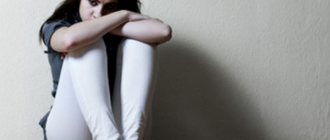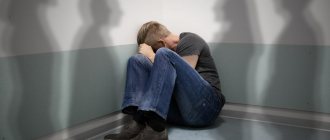During adolescence, various changes affect the body, and sometimes the child does not understand what is happening to him. Even insomnia in teenagers is a common condition, although adults usually associate it with stress and depression, which children cannot have. In reality, things are different: it is more difficult for a developing body to adapt, and it reacts with insomnia as one of the symptoms of possible disorders.
In most cases, you can get rid of insomnia without the use of drugs and traditional methods, as well as without visiting a doctor. A careful study of the factors that cause the condition in each case is sufficient. It should be borne in mind that insomnia is not always a complete lack of sleep.
Features of adolescence
During adolescence, many changes occur in the body. From the age of 12, male or female hormones begin to be dynamically produced, and the child becomes a physiological adult. However, he is not emotionally mature, for this reason the teenager encounters sleep pathologies, frequent mood changes, and impetuosity.
Metamorphoses that occur during adolescence:
- Physiological. The child begins to grow dynamically, his muscle mass increases, his appetite increases, and his metabolism accelerates. Some children become disproportionate, baggy, and lose coordination of movement.
- Psychological. Due to external changes, the young man begins to feel discomfort; he does not like himself. Due to hormonal imbalance, acne occurs on the face and body, and the skin of a young person becomes covered with hair.
Attention! In the adolescent body, the production of melatonin, the hormone responsible for sleep, is disrupted.
A maturing child does not sleep for a long time. Also at this age, he wants to have time to do his homework, take a walk, be alone, and devote time to hobbies and sports.
There is no need to follow the lead of a child who plays computer games or watches TV until 1–2 am. Parents need to remember that a teenager needs to rest more than 8 hours a day.
Features of a teenager's sleep
A teenager's sleep is different from the sleep of an adult or child. Between the ages of 12 and 21, the body begins to undergo restructuring, changes in hormonal levels, and the creation of new neural connections.
In addition to physiological changes, sleep is also affected by constant workload at school, emotional swings and family relationships, as well as a number of other factors. At this age, any change is perceived sharply, as is criticism from adults or other teenagers.
The specifics of a teenager’s sleep are determined by the following factors:
- Production of sleep hormone. During puberty, active restructuring of the biological clock begins (the beginning of the production of the hormone melatonin, which directly affects sleep). For this reason, the teenager physically cannot fall asleep early, and feels tired only an hour and a half after dark. Due to the school schedule, it is not possible to catch up in the morning. Therefore, a violation of sleep patterns and its duration occurs.
- The prefrontal cortex, which needs more glucose during adolescence. The monosaccharide is necessary to increase concentration, mental activity, and the ability to predict. When sleep problems occur, the prefrontal cortex is disrupted, which leads to absent-mindedness and memory impairment.
- Sudden mood swings and depression, which are caused not only by hormonal changes, but also by sleep disturbances. With proper rest, the hippocampus begins to work more actively, which processes positive emotions and memories. Teenagers go to bed much later, and starting from 1 am, the “usefulness” of sleep is less. Therefore, the cerebellar amygdala, which is responsible for negative memories, becomes more active.
Increases in blood pressure and blood insulin levels are also directly related to sleep. This can produce ghrelin, the so-called hunger hormone. It encourages overeating, which leads to obesity. In a teenager, the disorder can become a serious problem if it is not addressed in time.
Treatment of insomnia in adolescence
There are several methods, but the treatment protocol is determined by the doctor. Self-medication can worsen the situation, so it is recommended to consult first to avoid causing additional problems.
Drugs to improve sleep
Typically these are melatonin-based tablets and herbal extracts with a sedative effect. They are non-addictive and safe for people of any age. Antipsychotics are also used if the problem is caused by stress, but this is a special type of drug that definitely cannot be prescribed to yourself.
Folk remedies
Herbs, decoctions, potions, drugs. All this has long been used by ancestors to improve sleep and calm the nerves. It can often help if insomnia is caused by overexcitation of the nervous system. Chamomile, mint, lemon balm, linden - all this is wonderfully soothing.
Homeopathy
The point is in ultra-small dosages, which should return the metabolism in the body to its original state. It doesn't actually work, it only has a placebo effect.
Physiotherapy
Therapeutic exercise, gymnastics, breathing exercises, heating with an electromagnet - all this helps to normalize processes in the body and improve the patient’s condition. It is recommended to resort to them only after consultation with a doctor.
Medical assistance
A complex procedure that involves influencing all organ systems that can affect sleep and its quality. Most often, therapy, procedures, gymnastics, hypnosis are used; surgery is rarely needed.
Causes of sleep disturbance in teenagers
The causes of insomnia in adolescents must be sought in disruption of the physiological sleep-wake schedule, age-related changes in the body and high emotional tension initiated by psychological difficulties at home and in the team.
The main conditions that entail the onset of insomnia can be called:
- Excessive intellectual and psychological stress. After arriving from school, a teenager sometimes needs a short day's rest; it is also important to alternate the educational load with physical activities.
- Violation of the daily routine. Often teenagers want to sit at the computer longer before the weekend or during the holidays, arguing that they will be able to get enough sleep in the morning. This leads to deformation of the usual biorhythms and the emergence of additional exhaustion and irritability.
- Stress. Children tend to respond too emotionally to events and experience imaginary problems and failures for a long time and unpleasantly. All this contributes to difficulties falling asleep and creates stress.
- Lack of physical activity. For a teenager to develop properly, moderate physical activity is very important, for example, physical education activities, classes or physical work around the house. If a teenager spends very little time on his feet, he is likely to suffer from sleep deformation.
- Bad habits. Insomnia can be caused not only by destructive addictions such as smoking, but also by less terrible ones, which many parents do not consider unhealthy. For example, abuse of drinks that include caffeine (coffee, green tea, energy drinks).
- Communication on social networks. Online games and communication with peers attract teenagers so much that they are happy to spend all their free time in front of the monitor. This leads to the teenager going to bed late and unable to fall asleep quickly after emotional communication.
If a child suffers from frequent insomnia, parents need to talk to him, find out the reason for his confusion and find out how to help in this situation. Teenagers at this age are not always ready to share their troubles, so parents should strive to maintain an even relationship with them and not put unnecessary pressure on their growing children. A teenage girl will quickly tell her mother about her difficulties, and a boy will get in touch with his father.
Parents' actions
If you think it's worth visiting your doctor. Excessive fatigue can be caused by all sorts of health problems, not just sleep problems.
If you suspect a sleep problem, your doctor will look at your overall health and sleep habits. In addition to the physical examination, the doctor will take your medical history, ask you about any problems and symptoms you have, your past health, your family's health, medications you take, allergies, and other problems.
It's unlikely that tests can be done to find out whether there might be some structural problem interfering with your sleep.
Sleep disturbances go beyond the norm exactly at the moment when they begin to cause inconvenience, take away strength, and depress your mood. To always be normal, you need to give your body and brain time to rest, helping you fall asleep only with the help of folk remedies. For all other cases there is medicine and doctoral practice.
Symptoms of sleep deprivation
How does insomnia manifest in teenagers? Any young person may have various prerequisites for the occurrence, as well as various symptoms of this problem. Parents are obliged to carefully monitor and control the teenager’s sleep time, his condition and well-being, and also respond to negative changes in a timely manner. Particularly popular symptoms of sleep deformation and insomnia in children are the following:
- hostile state, irritability in the morning and afternoon;
- capricious reaction to small things;
- it is difficult for the child to direct his attention and concentrate, for example, on studying;
- it becomes difficult for the child to retain new things in his memory, his memory becomes worse;
- school performance deteriorates;
- the child constantly feels tired and wants to sleep;
- appetite decreases, or, conversely, the child wants to eat more than usual;
- waking up at night, after which it is very difficult to fall asleep again;
- a decrease in the sleep period, when the child begins to sleep less than 7 hours, this negatively affects well-being and health;
- it is difficult to fall asleep, the child may be tormented by intrusive thoughts, restless memories, due to which falling asleep increases to 2 hours;
- It is difficult to wake up; when a teenager does not get enough sleep, he feels depressed and exhausted.
Diagnosis of the pathological condition
First of all, insomnia in children is noticed by parents. They notice that the baby is tired and inattentive during the day. He may even complain of headaches. What to do when you suspect insomnia in a child? In this case, you should seek help from a pediatrician, somnologist, or psychotherapist. After examining and talking with the little patient, specialists refer him for further diagnostics.
Polysomnography is considered the most informative diagnostic method. A polysomnograph detects moments of changes in brain activity at moments when the subject is sleeping poorly or, for example, having nightmares. Thanks to polysomnography, doctors collect information about all functions occurring in the body overnight: the work of the heart, respiratory system, blood pressure.
The following research methods may also be needed:
- CT.
- MRI.
- EEG.
If a 10-year-old child has paroxysmal insomnia, the patient is referred for the following blood tests:
- Biochemical analysis.
- General analysis.
What parents can do
When a teenager loses normal sleep during puberty, some parents do not understand what they can do to eliminate insomnia. However, following certain recommendations will allow you to adjust the child’s daily routine, which will normalize a full night’s rest without the use of medications:
- Refusal of a late dinner - you should eat 3 hours before bedtime.
- Performing sleep hygiene - the room where the teenager rests should be quiet, dark and cool. To do this, the room is ventilated every day and an atmosphere suitable for sleep is created.
- Maintaining a daily routine - getting up and going to bed is recommended to be done at the same time. At the same time, you should not sleep more than 2 hours during the day, as it will be more difficult to fall asleep at night.
- There is a taboo on long computer games on the eve of bedtime, as well as watching TV - for this it is necessary to remove all equipment from the room where the child sleeps.
- Physical activity - if a child is not interested in sports, it is advisable for him to sign up for yoga, qigong and other classes. With the help of this, the child, while performing relaxing physical exercises, at the same time receives psychological relief. Such aspects have a positive effect on normalizing sleep at night.
- Dialogue between parents and child. Children in the puberty period need understanding, in this regard, parents are obliged to ask about their experiences, fears and thoughts - this will make it possible to remove emotional stress from the teenager.
- A guarantee of support so that the child knows that parents can help him cope with any situation. This will allow the boy or girl to eliminate restless thoughts, calm down and fall asleep naturally.
If all of the above measures are meaningless, parents need to show their child to a doctor, who will determine the causes of sleep deficiency and prescribe the necessary treatment.
Medical assistance
Before starting treatment for a teenager for insomnia, a somnologist (a doctor who studies sleep disorders and their treatment) or a psychotherapist conducts an examination of the patient, which will allow him to make a correct diagnosis and find out why this condition has developed. Only after this the doctor prescribes therapeutic measures for the teenager:
Psychotherapy (organized in individual or group mode)
It is used when the decline in the quality of night's rest is caused by psycho-emotional stress. During classes, the expert is able to identify a person’s problems and select methods to eliminate them. Sometimes not only the child, but also the parents need to visit a doctor.
Taking melatonin
The use of this remedy is required if the patient’s body is not able to produce it fully. The course of treatment and dosage of the supplement used are selected individually, and it is worth knowing that melatonin should not be taken for a long time.
Also, this remedy is prohibited for use by those who have not yet reached the mature sexual stage or are at its initial level.
Drugs to improve sleep
Insomnia at 12–16 years of age is usually a physiological condition, so doctors do not recommend using medications with a hypnotic effect. According to indications, hormonal medications may be prescribed that will replenish the lack of melatonin.
Harmless drugs for the treatment of teenage insomnia:
- “Dormiplant”;
- “Fitosed”;
- “Persen”;
- “Motherwort-Forte”.
The given products are made on the basis of medicinal plants. Their action is aimed at calming the nervous system and reducing excitatory processes in the cerebral cortex.
Advice! It is not advisable to treat a child yourself, especially with medications prescribed for insomnia in adults.
Phytotherapy
If a teenager has trouble sleeping due to emotional overstimulation and constant worries, you can use folk recipes. Treatment is carried out using teas and tinctures with a sedative effect.
The following herbs are used for this purpose:
- chamomile;
- passionflower;
- valerian;
- mint.
It is necessary to take herbal teas and decoctions with caution.
Attention! Incorrect dosage or exceeding the duration of the course leads to increased excitability. A teenager may also be allergic to the plant. If a runny nose, rash, redness, or swelling of the mucous membranes appears, it is recommended to discontinue herbal medicine.
Homeopathy
Homeopathic medicines are the safest and most effective in treating insomnia. They are not addictive, have no side effects, and are suitable for children and adolescents. It is recommended to take 5–10 drops or 8–10 grains of the drug to restore sleep.
The most popular drugs prescribed by a homeopath are:
- “DreamZzz.” The course of treatment helps restore night rest, reduce psycho-emotional stress, and regulates the absorption and excretion of glucose from the body.
- "Sonylux". This drug promotes overall strengthening of the body, eliminates headaches and sleep disorders.
- “Notta.” Prescribed to reduce excitability, restore emotional state after stressful situations.
- “Valerian-Hel.” The drops have a hypnotic effect, help normalize sleep, and eliminate neurasthenia.
Before prescribing the drug, the doctor studies the nature of insomnia and also finds out the reasons for its occurrence. The dosage and course duration are determined individually. In case of diseases of internal organs, homeopathy will not have the desired effect.
Reasons for the deterioration in the quality of rest
In rare cases, insomnia in children occurs for no reason. It can also be the result of various disorders. The main causes of insomnia are listed below:
- diseases (neuroses, kidney disease, depression, hyperthyroidism, Parkinson's disease);
- taking certain medications;
- overeating at night;
- emotional outbursts;
- apnea;
- diseases of the endocrine system;
- home furnishings;
- consumption of caffeinated drinks (mainly in adolescents);
- diseases of a somatic and psychological nature.
Let us describe the most common causes of insomnia in more detail.
Stressful situations
Most often, insomnia in a 10-year-old child is provoked by stress. Stressful situations can be called the main cause of insomnia in adolescents. Stress is provoked by various factors: fears, conflicts with friends, classmates, parents, difficulties in learning. If the baby complains of poor sleep, you should listen to him carefully. This way it will be easier for you to find out what is happening in your child’s life.
If you notice a teenager's irritability, try to find out the reason for it. Assess the atmosphere in the house, take an interest in relationships with friends, and academic performance at school. You can additionally chat with his teachers, classmates or friends. Due to the significant emotional sensitivity of children, insomnia can be triggered by family quarrels.
Taking medications
If your baby is having trouble sleeping and is taking certain medications at the same time, consult your pediatrician. Sleep disturbance can be caused by taking the following medications:
- corticosteroids;
- anticonvulsants;
- antidepressants.
The listed groups of medications can not only cause sleep disturbances, but also provoke gastrointestinal tract disorders.
Psychological problems
Insomnia can occur in children with mental or psychological disorders. In this case, you should not postpone your visit to a specialist. Make an appointment with experienced psychologists and psychotherapists in Rostov-on-Don. Thanks to registration, you will not need to waste time standing in line. Your child will be examined by doctors of the first, highest category. We will accurately determine the cause of insomnia and select the treatment that is effective in your case.
Insomnia is often observed in children suffering from the following psychological disorders:
- anxiety;
- depression.
Also, do not forget about behavioral disorders. Sleep disturbances are common in attention deficit disorder.
Physiological disorders
Insomnia can also occur due to physiological problems. It is difficult for babies to sleep peacefully if they have the following conditions:
- fibromyalgia;
- chronic asthma;
- muscle cramps;
- respiratory tract diseases;
- sleep apnea (in this condition short-term pauses in breathing occur);
- flu.
Drinking caffeinated drinks
Sleep disorders can be triggered by caffeine intake, which is found in coffee, carbonated drinks, and energy drinks. Teenagers are more likely to experience insomnia for this reason. Insomnia is also possible due to nicotine.
Poor nutrition
Doctors do not recommend going to bed with a full stomach. Overeating is especially contraindicated. Eating meat dishes is accompanied by a feeling of heaviness in the stomach. If a teenager feels discomfort in the stomach, heartburn, he will not be able to fall asleep soundly. You should also not sleep hungry. It is recommended to eat food 2 – 3 hours before bedtime.
Biological clock failure
At the age of 9, parents already take children on long trips, after which the child experiences insomnia. Due to flights between different time zones, the biological clock may be disrupted. Also, during the flight, the teenager experiences an emotional surge - the joy of discovering new territories. He is looking forward to new acquaintances and an unusual vacation.
Snoring (apnea)
Insomnia can occur in a child as young as 8 years old due to breathing problems. Most often, doctors observe apnea in children, but adults are no exception. In older people, breathing problems can be caused by enlarged adenoids or injury to the nasal septum.
home furnishings
Normal rest is possible only in a quiet environment. Of course, quiet voices or noise on the street will not really interfere with sleep, but loud music, TV, or screams from family members can cause insomnia.
Physiotherapy
Elimination of constant insomnia is possible with the help of physiotherapy: massages, baths, hydrotherapy. These techniques are prescribed as part of complex therapy. At the same time, the teenager is required to drink herbal teas or medications.
Particularly successful physiotherapy procedures:
- Progressive relaxation. With this technique, full tension of all muscles is stimulated, and then they are relaxed.
- Biofeedback therapy. The therapy is carried out using a unique device. It is based on teaching the child the ability to cope with his own emotions and completely relax before bed.
- Hydrotherapy. Soothing baths help calm the nerves and all muscles. The course of treatment provides the teenager with adequate sleep.
It is important to know! Physiotherapy is considered effective for teenagers who suffer from insomnia due to green nervous system or cardiovascular diseases. Using the mentioned techniques, temper, aggression, and apathy are eliminated.
Sleep patterns of 14-year-olds during the day and night
Children do not think about the fact that if they lack sleep, they will have many problems. The sleep schedule of 14-year-old teenagers should be the same every day. Parents should teach their child to go to bed at 10-11 pm and get up at 7 am. Upon arrival from school, a teenager can regain strength by sleeping from 15 to 16 hours.
Duration of sleep in 14-year-old children day and night
Teenagers must sleep not only at night, but also during the day. At night, a 14-year-old child may need 8 hours of sleep instead of the required 9.5. But because of this, he will feel lethargic and tired. During the day, teenagers 14 years old should allocate 30-45 minutes for rest. This time will be enough to relieve fatigue, restore strength and send you to classes in the section.
Causes of sleep disturbances
It happens that teenagers don't sleep well. There are several reasons for this:
- Excessive time spent at the computer or TV, watching movies, programs;
- Falling asleep with headphones on. Parents should prohibit their child from listening to music on headphones before bed.
- Taking medications containing caffeine. They increase performance, thereby disrupting sleep.
- Health problems, such as the respiratory system. To find out if your child is sick, you need to visit a doctor.
- Sleeping on a hard bed or in a stuffy room.
Doctors recommend paying attention to these nuances.
Why does a 14 year old child constantly sleep?
The main reason in adolescence is physical and mental stress. Most parents complain that their child does not sleep well during the day after coming home from school. Cases have become frequent when teenagers wake up for dinner and then go back to sleep, not waking up until the morning. Another reason for the constant desire to sleep is some disease that may be asymptomatic.
For example, some diseases of the ENT organs cause lethargy and malaise. They often occur without an increase in temperature. In this case, you need to visit a doctor and undergo the necessary tests.
Explanation of the pediatric neurologist, Anna Yuryevna Pleshanova:
“The main criterion for adequate sleep is being awake. If a teenager does not get enough sleep, but wakes up easily in the morning, feels good, does not suffer from drowsiness or fatigue, can handle school and sports activities without problems, and has a good memory, it means he sleeps a sufficient number of hours. If on the contrary, it is necessary to increase the duration of sleep at night or, if possible, allocate 40 minutes for sleep during the daytime.”
Other ways to fall asleep quickly for children and teenagers
To put a child to sleep at any age, you first need to create a calm environment in the house. If a baby or teenager does not fall asleep in his usual place (his room), it will be easier for him to cope with the problem of insomnia in an unusual environment. For example, organize a temporary sleeping place in the living room or playroom (if living space allows). Here are a few tips to help you overcome anxiety and related problems falling asleep:
- Monitor your child for the first signs of fatigue (yawning, bad mood, rubbing eyes, twitching, etc.). As soon as “symptoms” appear, quickly put him to bed. You will soon notice that every child, from infant to teenager, gets tired at approximately the same time. This way you can establish an optimal sleep pattern;
- Before going to bed, be sure to give your baby a bath and persuade the teenager to take a soothing warm bath with aromatic foam or essential oils (if there are no allergies);
- Give your baby a light massage. Caresses and kisses calm and relax at any age. Sometimes a simple hug from mom is enough to relieve the worries of the day;
- Make sure your child's sleep clothes are comfortable and appropriate for the outside temperature. With small children, of course, it is easier to control. But teenagers can and should be controlled too. Some mothers dress their children too warmly, fearing that they will catch a cold. But the child is the same person as you, so the sensations are identical. Don't try to buy too warm pajamas or wrap yourself in three blankets;
- do not hesitate to offer your care to the teenager - the child has not yet become accustomed to his adult status, perhaps this is what prevents him from falling asleep fully and quickly;
- place a night light in the child’s room or the place where he sleeps: many are afraid of complete darkness even as adults;
- Read a fairy tale to your kids, tell your teenager an interesting story from your life. Girls like to listen to romantic “fairy tales”; for boys, a “heroic” family legend is suitable. If there isn't one, invent one;
- many very young children like to wrap their heads in a blanket and close their eyes, this is the only way they feel safe - do not prevent the child from independently controlling the process of falling asleep;
- Try to put your child to bed at the same time every day or make sure that your teenager does not disturb the daily routine. The optimal time for younger children is 21:00, for teenagers - 22:00;
- make sure the child is not hungry. The baby should have a full dinner 2 hours before bedtime, if necessary - an hour. Your teen may refuse to eat, but be sure to offer some light food. Perhaps muesli or vegetable salad. Hunger is the main cause of poor sleep.
Every child, like an adult, is unique and reacts differently. It may happen that one piece of advice is optimal for the girl next door, but does not work at all for your boy. Even when it comes to brothers and sisters, there is no universal recipe. Therefore, it is necessary to get to know your child - his preferences, fears and worries. But keep in mind that by creating certain sleep habits, your baby will adopt them for life. Sometimes it can be very difficult as an adult to overcome your “childish” needs - caution in this matter will not hurt.










